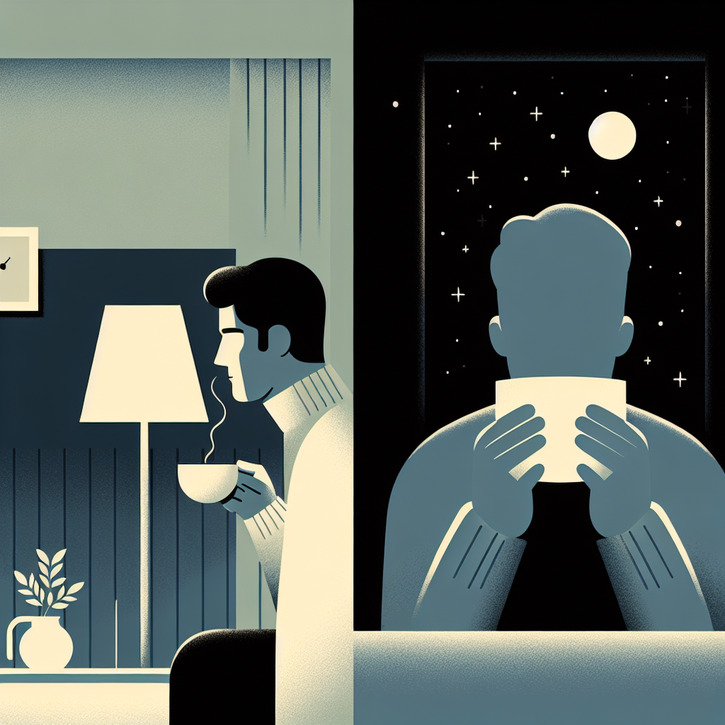How to Overcome Sleep Issues for a Restful Night

Welcome to the World of Sleep Troubles and the Quest for Restful Nights
What Are Sleep Troubles and How Do They Affect Your Daily Life?
When we talk about sleep troubles, we're referring to a whole bunch of issues that mess with how long and how well we sleep—from tossing and turning trying to fall asleep to waking up without feeling refreshed. It’s not just about feeling tired; these disturbances can make you snappy, fog up your thinking, and turn even the simplest tasks into monumental challenges. Over time, a lack of real, restorative sleep can zap your energy and focus, sometimes even leading to chronic fatigue. Grasping the ins and outs of sleep problems is key because the fallout extends well beyond simple exhaustion, impacting both your mental sharpness and physical health.
How Sleep Troubles Throw Off Your Natural Sleep Cycle
Your body’s sleep cycle is like a finely tuned orchestra—it moves through light sleep, deep sleep, and REM sleep each night. But when sleep troubles come into play, they can shatter this harmony, causing you to wake up frequently or miss out on those vital deep sleep stages. When your sleep cycle gets chopped up, your body can’t soak in the benefits of restorative sleep, which sets off a chain reaction of issues such as memory hiccups and a spike in stress. Often, these disruptions stem from our habits or even our surroundings, so building a regular sleep rhythm really is the secret sauce for overall wellness.
A Quick Rundown on What Can Cause Sleep Troubles
There’s a whole mix of factors that can throw your sleep off balance—from your lifestyle choices to the environment around you. Stress, messy sleep habits, and erratic schedules can really wreck the quality of your sleep, and on top of that, things like too much light or excessive noise can add insult to injury. Health issues like sleep apnea, insomnia, or restless leg syndrome can make the struggle even harder. Pinpointing these triggers is the first step—once you know what’s causing the problem, you can craft targeted solutions that tackle the root, not just the symptoms. It's all about empowering yourself to make choices that lead to better sleep and a healthier life.
Diving Into the Science of Sleep Troubles
The Body's Sleep Mechanics: How Things Work and What Goes Wrong
Sleep is a fascinating process, a delicate dance between brain chemicals, hormones, and your body’s internal clock. When everything is in sync, you glide effortlessly through the different stages of sleep. But even a small hiccup—like a dip in melatonin production or a wonky circadian rhythm—can throw a wrench in the works, making sleep troubles more likely to creep in. Understanding these physiological details explains why even minor disruptions can snowball into bigger issues. Researchers and clinicians dig deep into these biological mysteries to find ways to help restore balance, paving the way for treatments that work.
How Sleep Troubles Hit Both Body and Mind
The effects of sleep troubles are anything but trivial. When your sleep takes a hit, it’s not just your energy that suffers; your immune system gets weakened, leaving you more open to infections and chronic conditions. On the mental side, poor sleep can mess with your focus, mood, and memory, often fueling anxiety and mood swings. Missing out on a proper sleep cycle means missing out on your brain’s chance to recharge from daily stress, which can lead to an overwhelming sense of burnout. Recognizing these wide-ranging impacts is a reminder to tackle sleep problems sooner rather than later.
Myth-Busting: What You Think About Sleep Troubles May Not Be True
There are plenty of misconceptions floating around about sleep, which can muddy our understanding of what really counts as healthy sleep. For instance, think for a moment that one sleepless night won’t hurt—you might be surprised to learn that chronic disruptions add up over time. Then there’s the idea that only taking sleep aids can salvage a night’s rest, overlooking the possibility that simple lifestyle tweaks or behavioral therapies might do the trick. Clearing up these myths can lead us to smarter, more natural ways of dealing with sleep troubles.
Getting to the Bottom of Sleep Troubles
How Your Daily Choices Might Be Worsening Your Sleep
Believe it or not, everyday habits can be both the culprits behind, and the cure for, sleep troubles. High-pressure jobs, irregular sleep schedules, and too much screen time can flood your brain with stimulation, making it tough for you to wind down when bedtime rolls around. Even things like that extra cup of coffee late in the day or a heavy dinner can make it harder to fall asleep. Over time, these behaviors settle in as patterns that keep sleep disturbances in place. On the bright side, being mindful enough to adjust these habits can gradually restore your natural sleep rhythm.
The Role of Your Surroundings in a Good Night’s Sleep
Your sleep environment matters—a lot. Lighting, noise, room temperature, and even how comfy your bedding is can make a huge difference in how well you sleep. Too many distractions in your bedroom, like stray light or constant noise, can sabotage your sleep. Simple changes like installing blackout curtains, lowering the noise level, or keeping the room cool can create a more sleep-friendly space. By tailoring your environment to beckon calm, you set up a perfect retreat that helps your brain switch off at night.
The Hidden Mental Factors Behind Sleep Troubles
Often lurking beneath the surface are psychological factors—stress, anxiety, and sometimes depression—that keep your mind racing long after the lights go out. These issues can make it nearly impossible to relax, turning bedtime into a battleground. The irony is that worrying about not being able to sleep can itself keep you awake. Tackling these mental hurdles through therapy, mindfulness, or even a good old reframe of your thoughts can break the cycle and invite those peaceful nights back.
Smart Ways to Manage Sleep Troubles
Using Cognitive Behavioral Techniques to Beat Sleep Problems
Cognitive Behavioral Therapy (CBT) has a proven track record when it comes to fighting sleep issues without relying on medication. This approach helps you pinpoint and challenge those negative thought patterns that might be fueling your insomnia. By keeping a sleep diary and reworking anxiety-inducing thoughts before bed, you can start seeing real improvements in your sleep. Over time, many people find that CBT not only enhances their sleep quality but also boosts overall mental strength. It’s a game changer worth considering if sleepless nights have become all too common.
How Relaxation and Mindfulness Can Smooth the Path to Sleep
There’s just something magical about incorporating relaxation into your nighttime routine. Whether it's deep breathing, progressive muscle relaxation, or guided imagery, these techniques are fantastic for dialing down your stress levels. Mindfulness meditation, for example, helps tame those racing thoughts that often steal your sleep. By anchoring yourself in the present moment and letting go of the day's chaos, you create a state of calm that’s perfect for sleep. Over time, sticking with these practices not only softens the blow of sleep troubles but also clears your mind for a better day ahead.
Crafting a Sleep Routine That Works for You
One of the simplest yet most powerful strategies to improve your sleep is to set up a consistent routine. Going to bed and waking up at the same time every day helps regulate your inner clock and boosts the production of essential hormones like melatonin. It’s a good idea to build in pre-sleep rituals—something like reading a light book or enjoying a warm bath—to signal to your brain it’s time to relax. A regular sleep routine brings a comforting predictability to your nights, making it easier to transition between sleep and wakefulness.
Expert Advice on Tackling Chronic Sleep Troubles
When It’s Time to Call in the Professionals
Sometimes, sleep issues just won’t budge, no matter how many lifestyle tweaks you try. If you’re finding that sleep troubles are seriously messing with your daily life—think severe daytime fatigue, mood swings, or lapses in memory—it might be time to get expert advice. Sleep specialists, psychologists, or psychiatrists can dive into your specific situation and offer personalized solutions that strike at both the physical and mental roots of your sleep problems. Remember, reaching out for help isn’t a defeat—it’s a smart, proactive step toward long-lasting health.
The Scoop on Medical Treatments for Sleep Troubles
If your sleep struggles persist despite your best efforts, medical interventions might come into play. Options range from prescription meds to assist sleep or ease anxiety, to therapies like light therapy and sleep restriction therapy that help reset your whole sleep cycle. Tools like polysomnography (a sleep study) can give doctors detailed insight into your sleep patterns and pinpoint where things are going off track. These treatments work best when they’re part of a broader, holistic approach that includes smart lifestyle adjustments and behavioral changes.
Home Remedies to Naturally Tame Sleep Troubles
Embracing Nature’s Helpers for Sleep
If you lean toward natural remedies, you might be glad to know that several herbs have been lauded for their calming vibes. Chamomile, valerian root, and lavender aren’t just old wives’ tales—they’ve been celebrated for their sleep-inducing properties for ages. Sipping on a warm herbal tea before bed can signal to both your mind and body that it’s time to wind down, often lessening your need for synthetic options. Keep in mind that results can differ from person to person, so it might take a bit of experimenting (and a quick chat with your healthcare provider) to find the best fit.
Turning Your Space into a Sleep Sanctuary
Sometimes, a few tweaks in your bedroom can be the ticket to better sleep. It’s worth taking a hard look at your surroundings—cutting down on clutter, dialing down the light with blackout curtains, and keeping things cool and quiet can do wonders. Adding soft colors, gentle textures, or even a diffuser with a hint of lavender can transform your room into a genuine oasis of calm. These simple adjustments send a clear message to your body: it’s time to switch off and settle down.
Everyday Habits That Pave the Way to Better Sleep
Consistency with daily routines is key when it comes to smoothing out sleep troubles. Regular exercise, a balanced diet, and dedicated stress-relief practices all work together to support natural sleep. Cutting back on late-night screen time, maintaining a sleep diary, and creating a winding-down ritual can each make a big difference. Even small changes, like sipping less coffee or carving out time for a mini-relaxation session, add up over time to form a robust foundation for a healthier sleep pattern.
Long-Term Tactics for Lasting Relief from Sleep Troubles
Building a Customized Game Plan for Better Sleep
Finding long-term relief from sleep troubles is all about creating a plan that fits your unique lifestyle. Mix together behavioral tweaks, home remedies, and medical options if needed, to develop an adaptive strategy tailored just for you. Keeping track of your sleep patterns, noting what helps and what doesn’t, can provide priceless insights into what’s really working. With a proactive and flexible approach, you can build a sleep routine that not only tackles immediate issues but also bolsters your overall well-being in the long run.
Monitoring Your Progress and Tweaking Your Lifestyle
Keeping an eye on your sleep habits is essential for staying ahead of sleep troubles. Whether it’s through a sleep journal or using those handy wearable trackers, noticing patterns can help you identify what’s derailing your rest. As you learn more about your body’s needs, be open to making gradual adjustments—this might mean tweaking your bedtime routine, trying a new relaxation method, or simply cutting back on caffeine. This ongoing, iterative process not only helps you fine-tune your sleep but also reinforces the habit of self-care. With consistent effort and a willingness to change, you can keep sleep troubles at bay and enjoy truly refreshing nights.
In the end, tackling sleep troubles is about more than just clocking in enough hours of shut-eye. It’s a holistic journey that involves digging into the root causes, experimenting with practical strategies, and sometimes even seeking professional guidance. Whether it’s switching up your daily habits or rethinking your sleep environment, every thoughtful tweak brings you closer to reclaiming the restorative sleep you deserve. So here’s to embracing these research-backed practices and rediscovering the simple joy of a good night’s sleep!






